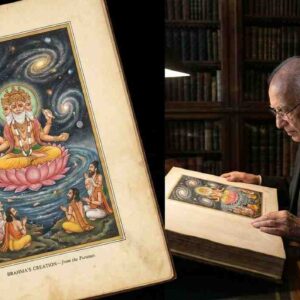The concepts ofreligionandphilosophyhave coexisted for millennia, often intertwined in their exploration of life’s greatest questions. However, they are fundamentally distinct in their methods, objectives, and underlying principles. Religious doctrine, rooted in faith and sacred authority, seeks to offer definitive answers and moral guidance, while philosophical inquiry thrives on questioning, reasoning, and an openness to multiple perspectives. Unfortunately, the two are often conflated, leading to misunderstandings that obscure their unique contributions to human thought.
The Nature of Religious Doctrine
Religious doctrine is built onfaith and divine authority, often codified in sacred texts and rituals. It provides moral and spiritual guidance through a structured framework that prioritizes adherence over questioning.
Key Features of Religious Doctrine:
- Faith-Based: Relies on belief in divine revelations and sacred teachings.
- Definitive Answers: Offers clear directives about the purpose of life, morality, and the afterlife.
- Community-Oriented: Fosters shared identity and practices through rituals, traditions, and worship.
- Immutable Truths: Doctrinal teachings are often considered eternal and unchanging, rooted in divine authority.
For instance, religious texts like the Bible, Quran, and Vedas prescribe ethical behaviors and spiritual practices that form the backbone of their respective faiths. However, these doctrines often discourage challenging their tenets, relying on faith rather than critical analysis.
The Spirit of Philosophical Inquiry
Philosophical inquiry, in contrast, operates in the realm ofreason and exploration. It does not seek definitive answers but instead encourages questioning, debate, and reinterpretation of concepts.
Key Features of Philosophical Inquiry:
- Reason-Based: Relies on logic, critical thinking, and evidence.
- Open-Ended: Emphasizes the journey of understanding over definitive conclusions.
- Individualistic: Encourages personal exploration of ideas rather than collective adherence to dogma.
- Dynamic: Philosophical ideas evolve over time, adapting to new discoveries and contexts.
Philosophers like Socrates, Confucius, and Shankaracharya used inquiry to dissect human existence, ethics, and the nature of reality. Unlike religious doctrine, philosophy thrives on challenging assumptions and reinterpreting truths.
Why the Confusion?
The conflation of religious doctrine with philosophical inquiry often arises because both address similar questions:
- Why are we here?
- What is the nature of good and evil?
- What happens after death?
However, theapproaches are fundamentally different. Religion often begins with answers provided by divine authority, while philosophy starts with questions, seeking answers through reason. This distinction is blurred when religious interpretations claim philosophical authority or when philosophical thought is oversimplified into rigid beliefs.
The Consequences of Conflation
Confusing religious doctrine with philosophical inquiry can have significant consequences:
- Stifling Critical Thinking: Treating philosophy as doctrine discourages questioning and debate, limiting intellectual growth.
- Misinterpreting Religion: Assuming religion must answer philosophical questions undermines its purpose of fostering faith and community.
- Polarization: The overlap often leads to debates that pit religion against reason, rather than appreciating their unique roles.
Embracing Their Differences
To truly appreciate both, it’s essential to recognize their unique contributions:
- Religious Doctrine: Provides spiritual solace, moral guidance, and a sense of community.
- Philosophical Inquiry: Encourages intellectual exploration, critical thinking, and individual growth.
These distinctions are beautifully exemplified in Indian traditions, where texts like theVedasemphasize rituals and cosmic order, while theUpanishadsdelve into philosophical exploration of concepts like Brahman (ultimate reality) and Atman (self).
Why This Matters
In a world increasingly divided between faith and reason, understanding the differences between religious doctrine and philosophical inquiry is more important than ever. By acknowledging their separate roles, we can foster mutual respect and encourage a balanced approach to life’s deepest questions.
Conclusion
Religious doctrine and philosophical inquiry are not interchangeable—they are distinct pathways to understanding existence. While religious doctrine anchors faith and community through unchanging truths, philosophy invites us to question and explore the unknown. By appreciating these differences, we can avoid conflation and embrace the unique wisdom that each offers. This clarity is essential for fostering a more thoughtful, inclusive, and intellectually enriched society.










